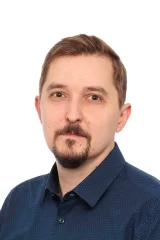
Abstract
Policy-making favours the use of evidence as an instrument for ideological aims rather than as a tool for balanced and rational deliberation. In this regard, discourses on ‘evidence-based policy’ fails to give a correct image of what is taking place in the political process. Theoretical discussion usually highlights the value-based starting points of policy instead of evidence. Evidence is thus a way to achieve political goals.
I use data from three projects, involving bibliometric analysis, social network analysis and interviews, to demonstrate how knowledge is built in education policy-making, via social construction in knowledge networks – instead of through rationalistic and deliberative processes.
As a result, evidence use is a part of a broader societal set-up of national and transnational knowledge networks, as well as a means to define relevant actors, processes or arguments in a policy field.
Visit Professor Jaakko Kauko's webpage (Tampere University)
Registration
The lecture is open to everyone. It is given as part of the PhD course "Knowledge Utilization and Transfer in Education Policy".